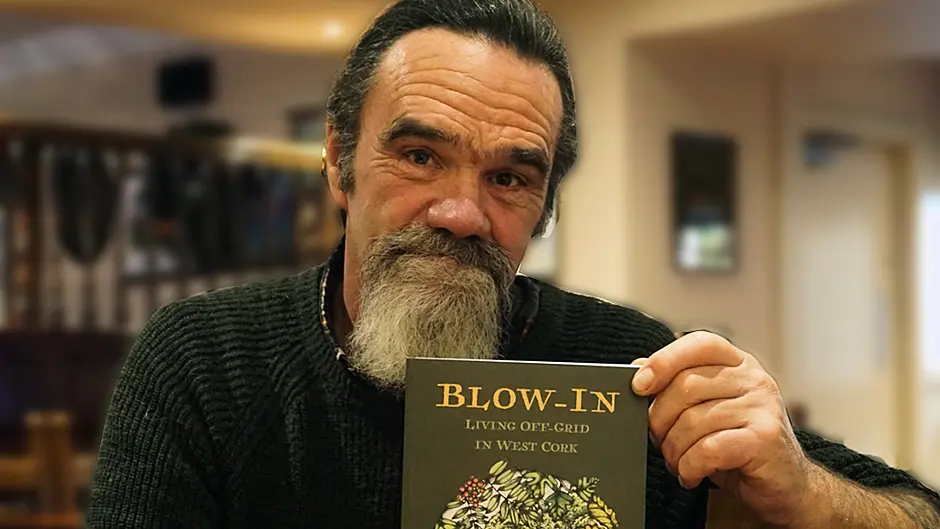A BOOK that tells the story of the Coolmountain community in West Cork is now on sale.
Fred Callow, who is originally from the Isle of Man but has been living as part of the so-called ‘hippy’ community since 1992, has written Blow-In: Living Off-Grid in West Cork.
It is the first title to be published by a new West Cork-based publishing company, Sweeney and O’Donovan, which has plans to publish three more titles in Spring 2022, including the memoirs of long-distance swimmer Steve Redmond.
Fred admits in the introduction to his book that ‘the real story would be to tell of the characters’ who were part of it all – the freedom, the friendship, the craic and the wildness.
But he doubted his own talents as a storyteller, fearing he’d turn such strong characters into caricatures.
But that doesn’t take from the book because Fred Callow is well able to give a lucid overview of the life lived by this ‘diverse bunch of individuals with widely different points of view and backgrounds.’
Fred, who was born in the 50s, sets out his stall. ‘I am the first in my family without direct experience of war. Instead of sacrifice, duty and service, I grew up in an age of sex, drugs and rock and roll.
‘ We never had it so good. Obedient conformity had given way to fundamental social change; individuality was encouraged, and revolution was in the air.
‘Clapton was God, Che Guevara’s face was on posters and T-shirts. We knew that racism, sexism, fascism, elitism, apartheid and nuclear weapons were totally unacceptable. That was the starting point.’
Most of those who came from the UK were hoping to escape from Thatcher’s Britain and a government that appeared to ‘revel in a totally avoidable war, destroy communities, stamp the jackboot on Northern Ireland, crush the unions at home and force millions into poverty and despair.’
It’s all polemic stuff, but Fred Callow said a lot of these people – including those who relocated from Europe – also held a deep suspicion of ‘the right to buy,’ the dreaded consumerism.
He said the population appeared to be divided quite cleanly into two groups: those who benefited from membership of the system and those who were the victims of it.
‘The general population was easily bribed into passive compliance using shiny consumer goods, television advertising, and credit cards,’ he said, ‘and ordinary people eagerly rushed forward to collaborate in their own downfall, believing they were getting ahead of the game.
‘Once you recognised that this system was somehow dangerously askew, you really had no choice … you couldn’t sit on the fence once you had been enlightened.’
You were, he suggested, either ‘with us or against us ... and the unholy trinity of marriage, mortgage, and career was something to be avoided at all costs.’
Fred’s book offers insights into the way of life that exists in Coolmountain but others believe it will be ‘an important contribution to West Cork history and a that it will offer critical reflection on the changes that have taken place in rural Ireland over the past three decades.’








